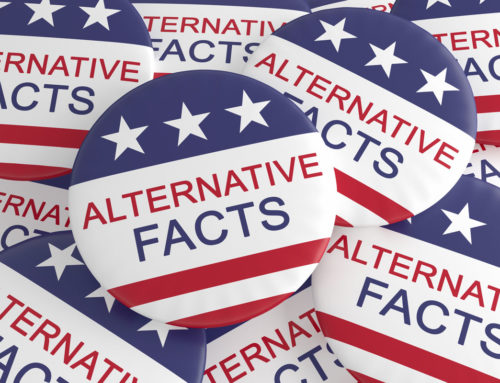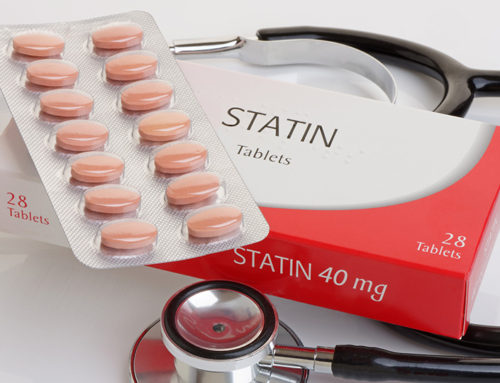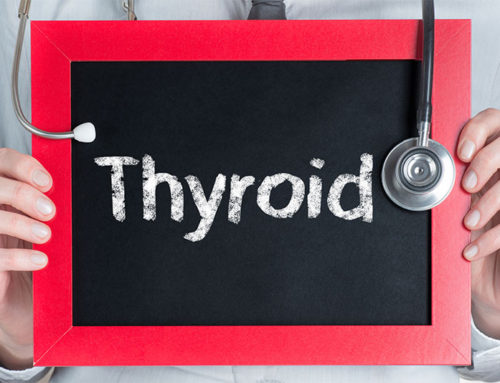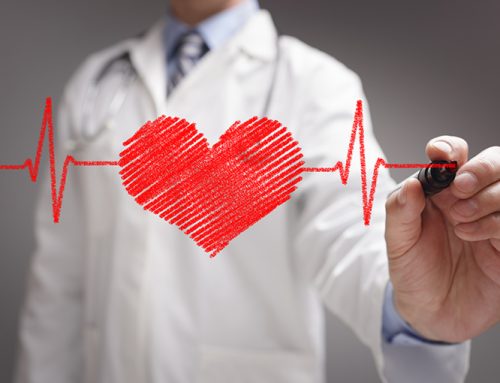Oh brother, here we go again…
Last week, the journal Atherosclerosis published a study examining the association between the number of egg yolks consumed per week and the amount of plaque in the carotid artery. The study concluded that eating egg yolks is almost as bad as smoking when it comes to speeding up plaque deposits.
OK, everyone, relax and take a deep breath.
The idea that a food which contains 13 essential vitamins and minerals, high-quality protein, antioxidants, eye-health supporting carotenoids (lutein and zeaxanthin) and brain supporting choline should have almost as bad an effect on the heart as a pack of Salems just doesn’t pass the smell test, even if your nose is clogged. And it doesn’t begin to jibe with previous research.
But that’s just the beginning.
Readers of this newsletter have heard me rail time and time again against drawing conclusions from what are known as observational studies, of which this is a prime example. If you’re new to my column, here’s the difference between clinical study (which this is most definitely not) and an observational one. It’s an important difference, and it’s essential to understanding why the present study is not only horrible science, it’s also useless.
What Exactly Is An “Observational Study”?
In an observational study from which many associations are generated, you take a whole bunch of people- thousands of them—and you gather data about a zillion different things.
Maybe it’s blood pressure and cholesterol, maybe it’s heart disease, maybe it’s what they ate for breakfast, how often they brush their teeth, how many of their parents had diabetes, how many of them own television sets, practice the rhumba, love Lady Gaga, take antidepressants, or pop a Centrum now and then.
OK now you’ve got a statistician’s version of heaven—tons and tons of data. A gazillion gigabytes of numbers from thousands of people, and it’s your job to see if there’s any pattern, to determine which things are “associated”, meaning “found together”. If two things are said to be associated (or correlated), that means there is some relationship between these two things.
Get it?
Of course, discovering that two things happen to be found together is only the first part of science. The second, important part, is finding out why. Observational studies don’t touch that question; they merely catalogue what’s found together and leave it to the big boys to run the actual clinical studies and find out what the found association actually means (if anything).
This study didn’t even generate tons of data because they only looked at two- count ‘em, two—variables. Smoking and egg yolk consumption. We’ll come back to this in a minute.
So this egg yolk study was an observational study, like all the other studies with weird and inexplicable “results” (i.e. taking a multivitamin will kill you). You cannot- repeat cannot– attribute cause and effect to an observational study. All you can say is that it’s been observed that two things are found together more frequently than might be by chance. You have no idea about why.
(If you want to read a great story about the idiocy of drawing cause and effect conclusions from observational studies, read the following paragraphs. If you’d just as soon move on with the story, skip over the part about storks and babies.)
Storks and Babies: A Short Tangent into Observational Studies
In a certain region of Denmark, there is a correlation between the number of storks and the number of babies. Seriously. It’s a positive correlation, meaning the more storks there are, the more babies there are. According to my old Psych 101 professor, Dr. Scott Fraser—this stork-baby correlation thing has held up for years.
So. A classic observational study shows more storks, more babies. Less storks, less babies. What do we conclude?
Well, here’s what we do not conclude, unless of course, we’re three years old: Storks bring babies. We might not know why the correlation occurs—it’s admittedly puzzling and amusing at the same time– but we’re pretty sure that it’s not cause and effect.
Dr. Fraser used this example back when I was in his psych class to introduce the concept of confounding variables.
A confounding variable is one which is not measured directly, but which accounts for the relationship between the two things that were measured.
See if you can find the “confounding variable” in the storks-babies correlation.
Give up?
Here’s the answer to the puzzle. In Denmark, the cities are largely populated by singles and by childless couples. When people want to have kids, they move to the suburbs. In the suburbs of Denmark, the houses tend to be A frames with tar-based sloping roofs. Storks love to nest on tar and sloping roofs.
The tar-based sloping roofs are the “confounding” variable. Both storks and newlyweds flock to the same area. Puzzle solved.
Back to Egg Yolks
When statisticians do studies like this “egg yolks kill” study, they try to “correct” for the confounding variables by applying statistical techniques that nullify other potential influences, like age, sex, years smoking and all that other good stuff.
But they can only “control” for the variables they think of. And they often don’t think of precisely the variables that are making the difference, particularly when they already have a point of view about what the outcome is going to be (it’s called “confirmation bias” and it’s rampant in research.)
In this study, for example, investigators claim to have statistically controlled for smoking, but they failed to control for overall lifestyle behavior. “Can they truly statistically control for all health factors of smoking?” asks Donald Layman, PhD. No, folks. They can’t. They also didn’t control for sugar intake, nor for omega-6 intake. (The high ratio of omega-6’s to omega-3’s in the western diet is probably responsible for more heart disease than saturated fat ever was!)
It gets worse. They also didn’t control for exercise. Not only that, they completely failed to mention whether the “high egg users” were also the “high smokers”. (Smoking is one of the biggest factors associated with increasing plaque area.) And did I mention that plaque generally increases with age? Subjects in the “high egg consumption” group had an average age of 69.7 years while subjects in the “low egg consumption” group were on average 12 years younger, with an average age of 55.7 years.
But that’s not even the best part.
Buried at the end of the study is the finding that there was no association between cholesterol and plaque growth. Not total cholesterol, not LDL cholesterol not HDL cholesterol. None of them had any association with greater plaque. So if eating 2 extra eggs a week—the difference between the “low egg consumers” and the “high egg consumers”—is causing plaque growth, it’s got to be by some other mechanism than the cholesterol in the eggs, since cholesterol wasn’t associated with the reported plaque growth at all. Yet they claim that the reason they did the study in the first place is because there’s reason to be concerned about the cholesterol in eggs!
Let’s review.
In a very limited observational study of 1200 people, researchers measured carotid artery thickness and then went back and examined data on two variables: smoking and egg yolk consumption. That’s all, folks. And they found that people (average age 57) who ate about 2 ¾ eggs a week had less plaque growth than people (average age 69) who ate about 4.1/2 eggs a week.
Plaque growth might also have been positively correlated with portions of asparagus eaten on Wednesdays or number of pitches thrown in a little league game when the subjects were nine. Of course the researchers wouldn’t have looked at any of that, because they wouldn’t have thought it was relevant. And maybe it’s not. But is sugar consumption? Omega-6 fat consumption? Lifestyle choices? Smoking? Age? The investigators didn’t look at other “suspects” because they had already decided they had the guilty party.
David Jenkins, one of the researchers on this paper, is a wonderful man, a very smart, gentle scholar who has made an enormous contribution to nutrition with his work on glycemic index. I questioned Dr. Jenkins after his presentation at the American College of Nutrition conference in New York in 2010, and it was abundantly clear that he was a strong believer in the cholesterol hypothesis and that he was concerned about the growing trend towards looking at cholesterol as just a minor player in heart disease. For those of us who believe that the cholesterol hypothesis is just a myth, I’m sure he feels this study is a wake-up call
Unfortunately this study is nothing of the kind. Sad to say, it’s just really bad science and I’m honestly amazed that it got published at all.














There is a very high correlation between egg white and egg yolk consumption.
LOL Richard!
Great article, Johnny! I hate when “studies” like this come out and confuse people.
Same thing with the whole “8 glasses of water a day” debate that convinces people they don’t need to drink that much, or they can get it from other beverages or food. (Well, the only other true water beverage in my opinion is non-caffeinated herbal teas).
I will pass this post on.
I agree Dr. B- it’s reckless to suggest this and even more impossible to verify. Probably shouldn’t have been published.
Thanks for setting the record straight!!! Boy am I in trouble if that “study” says true, my egg consumption is 28 per weeks! Fortunately, I’m not one to suffer nonsense so I enjoyed my four eggs for breakfast this morning.
Richard you missed something (confounding variables) they are served on the same plate at the same meal and they came out of the same egg.that would only be legit if you got 2 thousand eggs and took the white out of one thousand and the yolk out of another and allowing for the likely number of double yokes there would be the same or on;y a few more yokes. Then your hypothesis could be consiodered proven
Hi Jonny,
Yes, very silly and misguided study. The cholesterol in foods, including egg yolks, is easily metabolized. It is the cholesterol generated by too much insulin from eating too much refined sugars and low fiber carbohydrates that can be harder to metabolize. However, I’ve sent countless patients for EBCT heart scans and correlated their coronary artery plaque scores with LDL cholesterol, lipoprotein particle size and numbers, homocystiene,Lp(a), triglycerides, and hsCRP blood levels and am convinced that unless there is a genetic disorder total cholesterol and LDL cholesterol have very little to do with heart disease. The potentially inflammatory arachidonic acid contained in egg yolks is easily mitigated by taking fish oils before someone eats their eggs. Doctors who don’t really look for themselves and reflexively over-prescribe statin drugs are unintentially lower very important reproductive and adrenal steroid hormone production because cholesterol is the precursor for all those hormones. Lp(a) and homocysteine are the bigger culprits but there isn’t $ billions to be made from the B-vitamins that lower these chemicals. Good work my friend-dr
Jonny, Well done and very educational for those who order fried eggs and then anatomically dissect the yolk from the white! No one could have said it better!
As a consumer I am not surprised by thr study or that it got published. Consumers tend to believe what doctors/ scientists say and publication adds credibility to the message. Unfortunately for the consumer the message usually serves the writer, association, market, industry, economics, politics well before the consumer. Consumers are manipulated, their welfare is rarely the intention behind science, junk or real. In a socirty of information, computers, and capitalists the end justifies the means. I dont know what the ends means….stop eating eggs and smoking? I eat eggs and take in second hand smoke more dangerous if I smoked. What is a consymer to do?
This demonstrates the problem with most nutritional studies. I disagree the glycemic index has been very helpful. It is only useful when preparing processed foods and if you are eating processed foods, your health is already in the tank. Comparing the glycemic index of Keebler Chips Deluxe with Oreos isn’t going to improve your health.
Thank you for the clear explanation between an observational and clinical study. This helps to debunk so many headlines!!!
Hi Jonny,
It’s hard to believe that people actually believe this type of research on foods. I can understand why so many people are confused about nutrition and what is a healthy diet. Mean while I consume an average of SIX whole jumbo eggs every day and some days (training days) I eat more than a dozen. I eat very low carb as well and this hasn’t negatively impacted my health, In fact my triglycerides and cholesterol have greatly improved!
Hi Jonny,
Had to chime in again. If these researchers want to do another observational study then maybe they could head down to the local grocery store and observe. Being over weight and or obese is a big factor in heart disease, and many of these people didn’t get there from eating eggs and too much fat. Next time anyone is in the grocery store look at what these people are buying, it’s not eggs, meats, cheese, etc, it’s cerials, frozen foods, noodles, breads, junk foods, etc..
Hi Jonny,
I love eggs, been eating them since i
was 8 years old, got to be my favorite
food and have been eating a dozen a
week, still do i am 86 years of age
and when my doctor heard that some weeks i
eat 20 eggs he almost fell over and could
not believe my blood test.bless you.. jonny
Jonny,
Excellent article and analogy! I have had several heart attacks and related medical procedures. I weighed 254 pounds and was fed the conclusion that it was cholesterol. I have done much research and, with your info, have found that the culprits are not cholesterol but elevated sugars and flour based breads, baked goods that thicken the blood and cause arteries to get hard and break! The roadblock of broken, flaking artery walls is the problem, not the cholesterol crashing into the roadblock!
Almost every American has prescribed antibiotics at some point in their life. Yeast in the gut is normal and is impervious to antibiotics. The remaining yeast begins to dominate and grow from the intake of sugar, gluten and flour. I call that a “yeast invasion”! The reason I call it that is because the yeast causes the body to crave sweets, sugar and even alcohol! That invasion causes the need for increased insulin and that triggers BIG FAT storage. Thereby obesity and hardened arteries begin the roadblock!
I was 254 lbs at 5′ 9″ and after the elimination of the sugar and bakery foods I’ve lost 84 lbs and am down to 170 lbs. My arteries are clear and I eat eggs again as well as protein and good fat and am in the best physical condition ever.
Thanks again Jonny!
Dear Jonny, Thank -you so much for doing my leg work and really digging out the true nature of this study. I am a Certified Bariatrician trying to manage a wellness and weight management in Southeast Kansas in the 2nd most obese county in the state. I spends many hours trying to teach my patients about the dangers of refined and procesed sugar and starch in the Amercian diet. I tell them an, whole, uncracked egg is one of nature’s most perfect foods and can actually improve their lipid profile in many ways, not to mention it has wonderful protein, and is low carb and calorie efficient. Many, many well done studies have shown this fact. So I was shocked to hear of this study, of course from my patients who saw CNN! I thought science had gotten up past the “let’s villify the egg stage”. God made it and I will certainly continue to take my chances with an egg over a Salem.
Oh, Lord, the correlation v causation thing again – it makes me just want to slap lazy “journalists” who report so uncritically on any dubious new “science”. Yet so many people obviously don’t understand the difference.
I liked the stork story, Johnny. 🙂 My way of describing it is to talk about the alarming correlation between umbrellas and rain. Every time it rains, you can see people all over the place carrying umbrellas! Clearly, umbrellas must be the cause of rain!
I also did not realize the difference between “clinical” and “observational” studies. I will be sure to pay more attention to this when future “studies” are released. No wonder we consumers feel like “yoyo’s” with all of the contradicting data thrown at us daily. My first time on your web page but I will definitely return. Good information
Phillip
thank yoU!
I love all the reinforcement from other doctors and specialists. It’s great to see that there are many who agree with these “underdog” nutrition truths. I don’t like being confused when it comes to food, especially when most of it is good for me. And Dr. Johnny, I have just ordered a couple of your books and am excited to read them. I am ready to make a positive change in my eating habits.